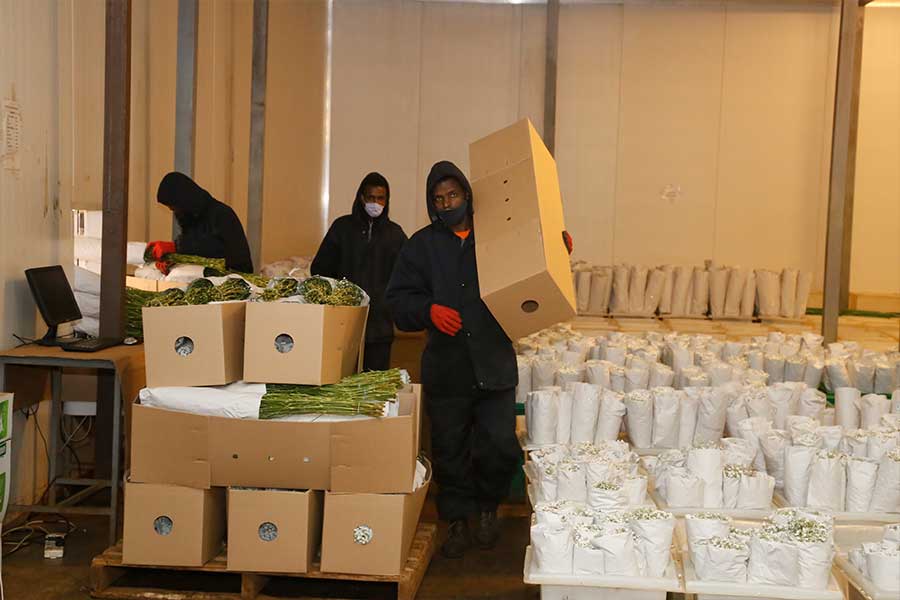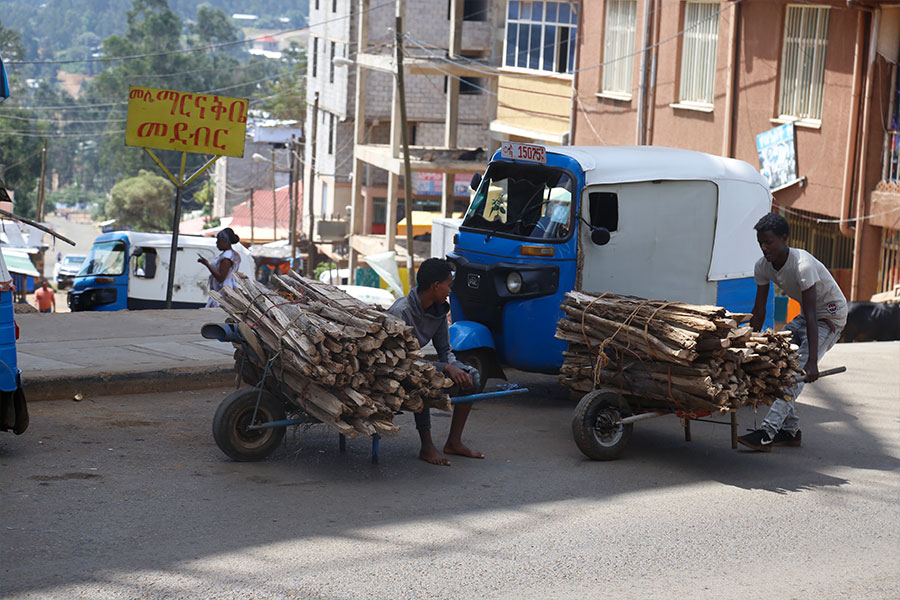
Fortune News | Mar 05,2022
Two days after sanctioning traders from making price changes, hoping to ward off inflationary pressure, the Addis Abeba City Administration officials have banned landlords in the capital from increasing rent for three months.
The authorities hope the measure will halt the runaway cost of living where no less than 40pc of household income is spent on rent. Approved unanimously during a recent cabinet meeting, the latest in a series of restrictive measures from government officials also prohibits the eviction of tenants effective August 24, 2021.
The Administration of Prime Minister Abiy Ahmed (PhD) has been on a course to put a handle on the exasperating cost of living in the city over the last few weeks, blaming skyrocketing prices on "illicit activities" and "economic sabotage." For the last three years, there has been a fleeting increase in food and non-food prices, though it has been particularly unbridled this year.
The Central Statistics Agency puts the yearly moving average inflation in the capital at 23pc for July, three percentage points lower than the national average. It was largely driven by a surge in food prices, which stood at 30pc. However, the city's officials believe the inflationary pressure is induced artificially and not caused by underlying economic factors. In a statement the Mayor's Office issued on Saturday, August 28, they urged tenants whose rentals increase over the next three months to report to Woreda offices.
The rent freeze is subject to extension if authorities deem it fit, the statement said. Last year, during the onset of the COVID-19 pandemic, the city Administration enacted a similar freeze.
Assefa Gebregiorgis, a broker operating in CMC and Ayat areas, has recently seen a tremendous increase in rentals. Rental for a studio apartment in the area has almost doubled to 5,000 Br over the past six months, which he sees as "incomprehensible." Dwelling in a rented house himself, Assefa commends the decision by the city cabinet; he believes the measure could potentially stabilise the ballooning cost of living.
However, this may work for a while, but it might also create chaos with potential disagreements between tenants and landlords, says Kiflu Degefe (PhD), a macroeconomist working on trade policy. The freeze on rental fees does not make economic sense.
"The Administration might have considered it a temporary solution," he said.
Two weeks ago, city authorities announced all services related to property transfers should be halted in a memo addressed to all government offices providing land lease-related services.
These measures stem from a collaborative venture of entities under the City Administration: a task force is in charge of keeping peace and security; another to counter "economic sabotage" and stabilise the market; and, a third tasked to do a charm offensive in an awareness creation campaign among the public.
The economic wing of the task force, under the Addis Abeba Trade Bureau, is coordinating its work with counterparts in Oromia Regional State. Cooperative agencies, revenues bureaus, and police commissions are members. The Administration has created similar task forces in wereda structures in all the districts.
The task force is working intending to increase the supply of goods and restraining "unreasonable" price increases, according to Abdulfetah Yusuf, director of the Addis Abeba Trade Bureau.
The task force works with consumer cooperatives to ensure the supply of goods "at affordable rates" and binds wholesalers from having margins as they please.
"We want them to subdue unnecessarily increased prices," said Abdulfetah.
The Federal Cooperative Agency supplies the market with essential goods at discounted prices, such as teff, cereals, fruit and dairy products. It receives subsidies from the City Administration. Outlets run by unions across the city sell a quintal of teff for 4,700 Br, 1,000 Br less than the market.
Many consumers are not aware that they can go to cooperatives, says Ayalsew Worqineh, public relations director at the Agency.
"We've observed that people don't go to cooperatives even though commodities are available for lower prices," said Ayalsew.
Some experts see these interventions as long overdue, indicating the recent inflation observed in the city has little macroeconomic ties. One of these experts is Demis Chanyalew (PhD), an economist who studied macroeconomic policies over the last three decades. He encourages the government to continue the intervention as the country is going through a time of war.
"The government must utilise all of its authority and regulate the market," says Demis.
Kiflu, however, fears commanding the market through task forces may lead to yet another parallel market.
[ratemypost]
Fortune News | Mar 05,2022

Commentaries | Jul 10,2020

Radar | May 20,2023

Radar | Jun 21,2021

Commentaries | Sep 06,2020

Radar | Jul 20,2019

Fortune News | May 31,2020

Agenda | Dec 30,2021

Editorial | Oct 07,2023

Radar | Oct 24,2020

Dec 22 , 2024 . By TIZITA SHEWAFERAW
Charged with transforming colossal state-owned enterprises into modern and competitiv...

Aug 18 , 2024 . By AKSAH ITALO
Although predictable Yonas Zerihun's job in the ride-hailing service is not immune to...

Jul 28 , 2024 . By TIZITA SHEWAFERAW
Unhabitual, perhaps too many, Samuel Gebreyohannes, 38, used to occasionally enjoy a couple of beers at breakfast. However, he recently swit...

Jul 13 , 2024 . By AKSAH ITALO
Investors who rely on tractors, trucks, and field vehicles for commuting, transporting commodities, and f...

Oct 25 , 2025
The regulatory machinery is on overdrive. In only two years, no fewer than 35 new pro...

Oct 18 , 2025
The political establishment, notably the ruling party and its top brass, has become p...

Oct 11 , 2025
Ladislas Farago, a roving Associated Press (AP) correspondent, arrived in Ethiopia in...

Oct 4 , 2025
Eyob Tekalegn (PhD) had been in the Governor's chair for only weeks when, on Septembe...